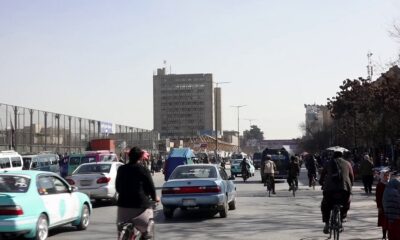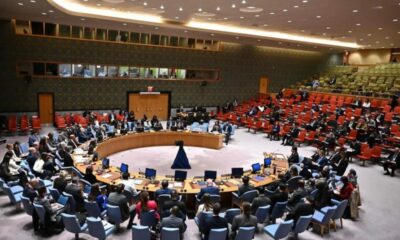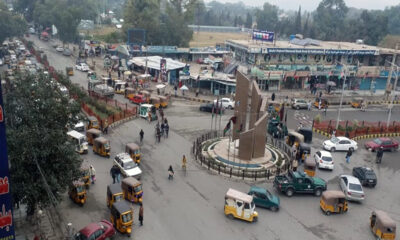Business
SIGAR issues pessimistic economic forecast for Afghanistan
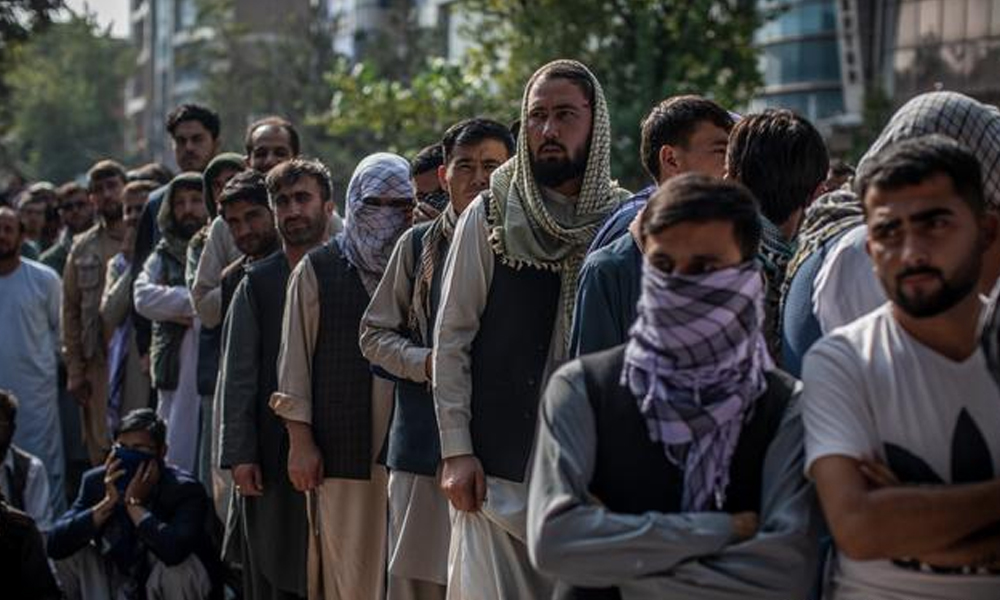
Afghanistan’s economy suffered severe contraction in 2021, with the UN Development Programme (UNDP) and IMF estimating up to a 20–30 percent drop, the US Special Inspector General for Afghanistan Reconstruction (SIGAR) reported.
According to SIGAR’s latest report, annual per capita income is estimated to have fallen from $650 in 2012, to $500 in 2020, and is expected to drop to $350 by 2022.
SIGAR stated that male unemployment in Afghanistan may nearly double from 15.2 percent in 2019 to 29 percent by 2022.
“In the worst-case scenario modeled by the Asian Development Bank, unemployment could increase by more than 40 percent in the short run and household consumption could contract by 44 percent,” read the report.
The devaluation of the afghani has also impacted the Afghan economy and further diminished Afghan households’ ability to purchase food and
other necessary items, because much foreign trade was settled in US dollars.
Since August last year, the afghani has depreciated against the US dollar, from approximately 77 afghani to the dollar to around 105 as of January
2, 2022.
SIGAR also reported that adding to the pressure on the country’s limited cash reserves, Afghanistan lacks the technical capabilities to print its own currency.
According to SIGAR, the IEA has not yet secured or developed a domestic printing source for afghani banknotes.
SIGAR reported that Afghanistan’s largely cash-based economy has continued to struggle with an acute cash shortage since November, which has limited day-to-day economic activities.
“Banks are at the center of a liquidity crisis, with lost access to international financing and depositors attempting to recover their funds,” read the report.
According to a UNDP report, Afghanistan’s banking system is in “existential crisis.” Total deposits had fallen to the equivalent of $2 billion as of
September 2021 from $2.8 billion the month.
As the Afghan economy has struggled to find areas of sustainable economic growth in recent years, the country has increasingly relied on remittances from Afghans working abroad, especially in neighboring Iran.
By 2019, remittances accounted for the equivalent of 4.3 percent of Afghanistan’s annual GDP, an increase from 1.2 percent in 2014, according to World Bank data.
However, officials from the UN’s International Organization for Migration estimate this figure could have been as high as 15–20 percent, given that many remittances are sent through the informal hawala money-transfer system.
According to officials at Médecins Sans Frontières, with the absence of a functioning banking sector, many NGOs have also been forced to rely on
hawalas to pay expenses within Afghanistan.
In November 2021, the IEA announced a complete ban on the use of foreign currency in Afghanistan, interfering with remittance activities and
worsening the country’s liquidity crisis.
However, SIGAR reported that indicators suggest that the currency ban is not being actively enforced against the US dollar, which continues to be widely used in Afghan markets.
Business
Afghanistan and Uzbekistan emphasize expanding economic and trade cooperation
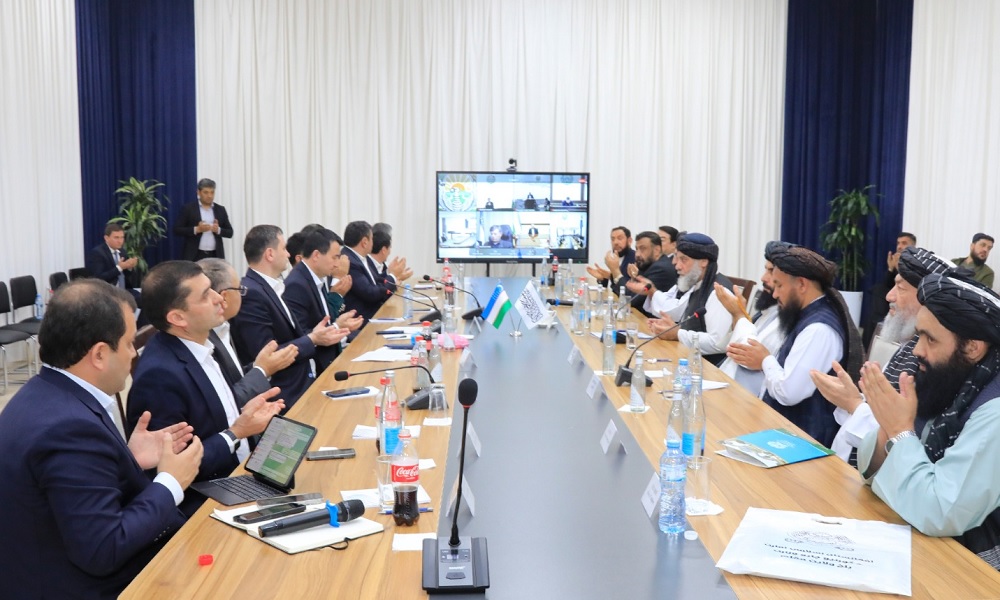
Nooruddin Azizi, Minister of Industry and Commerce of the Islamic Emirate of Afghanistan (IEA), during his official visit to Termez, Uzbekistan, met with Jamshid Khodjayev, Deputy Prime Minister of Uzbekistan, to discuss expanding bilateral economic ties.
The meeting was attended by Mohammad Yousuf Wafa, Governor of Balkh, Abdul Ghaffar Bahr, Afghan Ambassador to Tashkent, and several representatives from Afghanistan’s private sector. The two sides held extensive talks on enhancing trade relations, increasing trade volumes, expanding transit routes, removing trade barriers, and promoting joint economic initiatives.
Minister Azizi emphasized the growing partnership between the two countries and stressed the need to accelerate the implementation of agreements while providing greater support and facilities for traders and investors.
Deputy Prime Minister Khodjayev welcomed the Afghan delegation, highlighting the interest of Uzbek investors in sectors such as agriculture, mining, transport, infrastructure, and health. He also announced Uzbekistan’s readiness to deploy technical teams to support the execution of joint projects.
Azizi expressed Afghanistan’s full commitment to cooperating on shared economic initiatives, while representatives from the Afghan private sector shared their proposals, emphasizing the importance of closer collaboration between the two countries’ private sectors.
The meeting also included participation from Uzbekistan’s Ministers of Transport, Agriculture, Energy, and Health, the First Deputy Minister of Foreign Affairs, and several provincial governors, who joined online.
Business
Rail transport from Iran to Afghanistan surges 17-fold
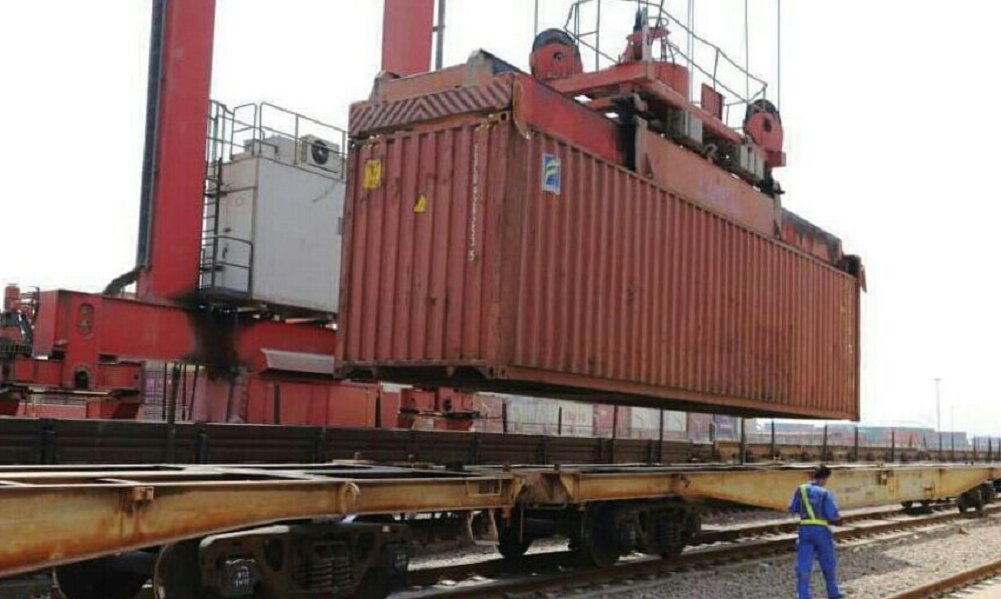
Rail freight between Iran and Afghanistan has increased 17-fold during the 1404 solar year, underscoring a sharp rise in cross-border trade and transit activity, Iranian officials say.
Shahryar Naqizada, Director General of Foreign Trade for Iran’s Railway, told state news agency IRNA that between March 2025 and February 2026, some 650,000 tons of goods were transported to Afghanistan by rail.
Of that total, approximately 150,000 tons consisted of transit cargo — goods originating in third countries and routed through Iran before entering Afghanistan.
The surge reflects Tehran’s broader push to strengthen regional connectivity and position itself as a key trade corridor linking Central Asia to international markets.
Rail links between the two neighbors have become increasingly important as Afghanistan seeks alternative trade routes and more cost-effective import channels.
A major driver of this growth is the Khaf–Herat railway line, which connects northeastern Iran to western Afghanistan and has gradually expanded commercial operations in recent years.
The line reduces transport costs and transit times compared to road freight, while also improving reliability for bulk commodities such as construction materials, fuel, food products, and industrial goods.
Looking ahead, Naqizada said Iran aims to move two million tons of cargo through the Shamtigh border crossing in the 1405 solar year (2026–2027), calling the target achievable given current momentum.
The increase in rail shipments comes amid expanding economic engagement between the two countries, including discussions on infrastructure investment, transit cooperation, and agricultural trade.
Analysts say improved rail connectivity could further integrate Afghanistan into regional supply chains, particularly if complementary customs and logistics systems are strengthened on both sides of the border.
Business
Iran looks to expand economic ties with Afghanistan through contract farming

Iran is exploring ways to deepen economic engagement with Afghanistan, focusing on contract farming and trade, as discussions continue over potential formal recognition of the Islamic Emirate of Afghanistan (IEA) government, a senior Iranian business official said.
According to Iran News Daily, Mahmoud Siadat, head of the Iran–Afghanistan Joint Chamber of Commerce, said recognition of the Islamic Emirate of Afghanistan would boost investor confidence and facilitate long-term projects, including rail links connecting Iran to China via Afghanistan.
While no formal recognition has been confirmed, Siadat noted that bilateral relations have steadily improved.
Iran exports over $3 billion in goods and services annually to Afghanistan, including technical and engineering services, while Afghan exports to Iran remain limited at around $100 million.
Siadat highlighted agriculture as a key growth area, with plans for contract farming where Iranian firms would provide technology, expertise, and guaranteed purchase agreements for Afghan crops and livestock.
“Instead of importing legumes from Canada, we can source them from Afghanistan,” he said, noting that structured agricultural cooperation could benefit both countries.
Remittances from Afghans working in Iran, he added, further underline the strong economic ties between the neighbors.
Even without formal recognition, trade remains robust, but Siadat emphasized that a clear diplomatic framework could unlock more investment and strategic projects.
-

 Latest News1 day ago
Latest News1 day agoPakistani military jet downed in Afghanistan’s Jalalabad, pilot captured alive
-

 Latest News2 days ago
Latest News2 days agoAfghan Air Force conducts airstrikes in Islamabad, other cities
-

 Latest News2 days ago
Latest News2 days agoIEA: Special circle in Pakistan has launched mission to destabilize region
-

 World4 days ago
World4 days agoIndia’s Modi backs Israel in address at Israeli parliament
-
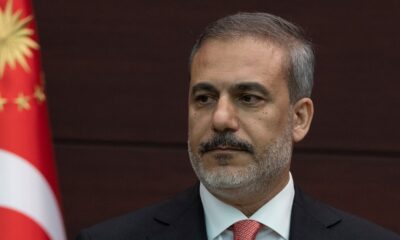
 Latest News2 days ago
Latest News2 days agoTurkey launches initiative to diffuse Afghanistan-Pakistan tension
-

 Regional3 days ago
Regional3 days agoNarendra Modi holds high-level talks after historic address to Knesset
-

 Latest News2 days ago
Latest News2 days agoAfghans say they are united against Pakistan aggression
-

 Latest News3 days ago
Latest News3 days agoPakistan carries out airstrikes after Afghanistan launches retaliatory attacks




